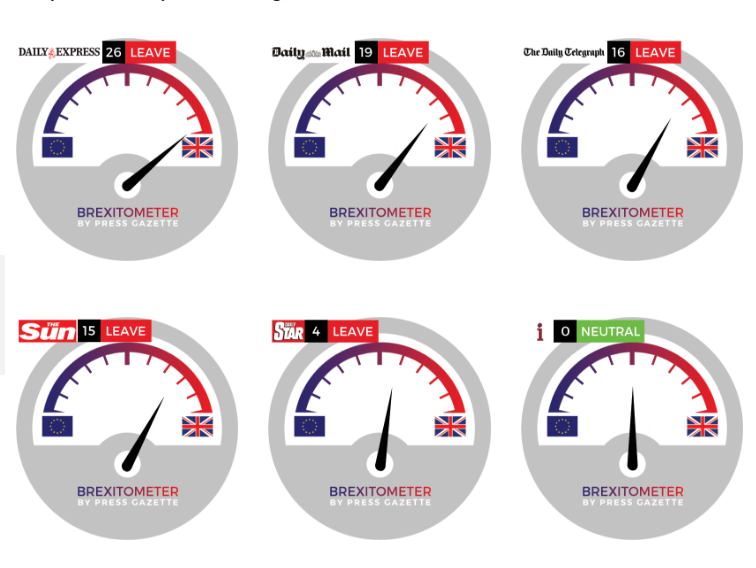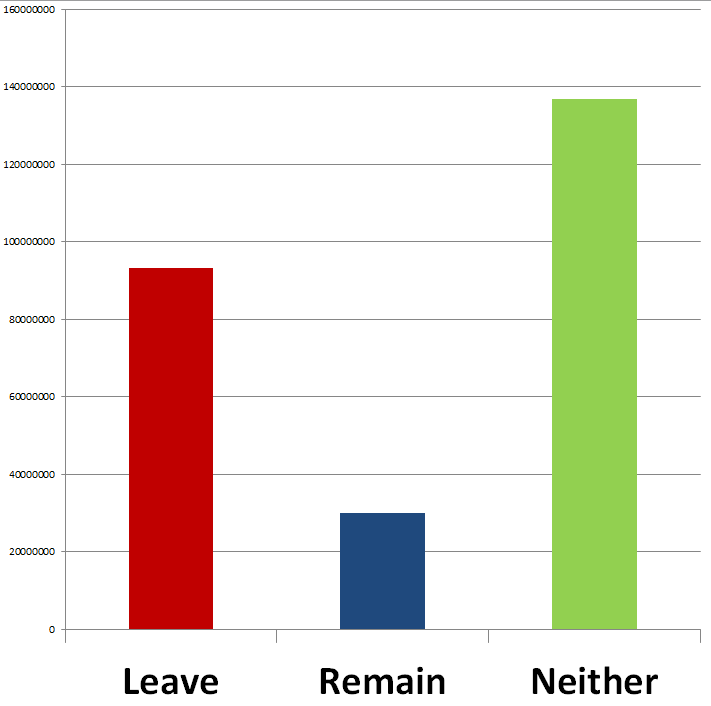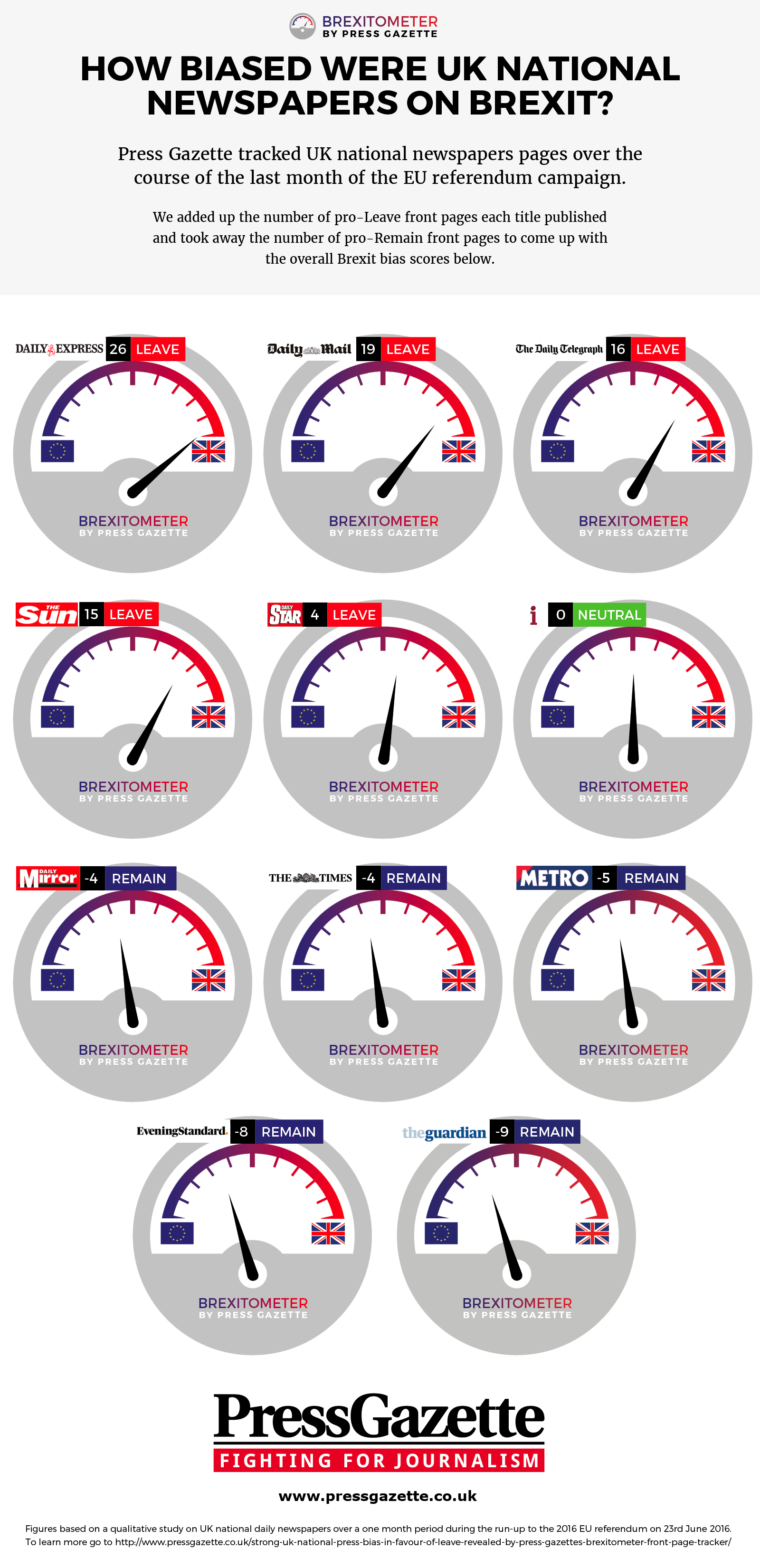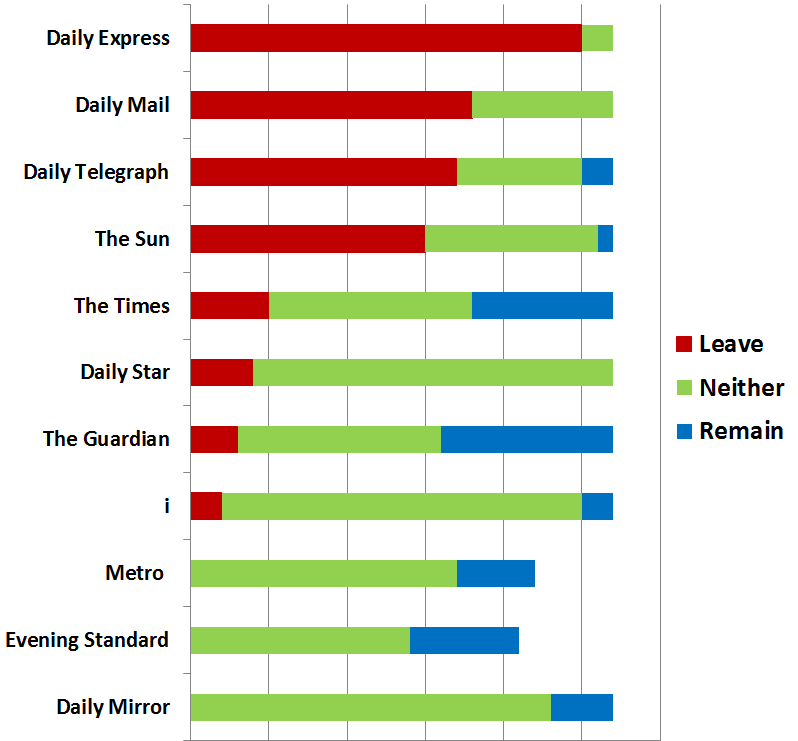
The editors of the Sun, Telegraph, Express and Mail titles can reflect today that it was probably them ‘wot won it’ for the Leave campaign.
This week they all declared for Leave with prominent editorials. But throughout the campaign they have made their positions clear with front-page stories which have been chosen and written to benefit the Leave side of the argument.
Today Press Gazette publishes our ‘Brexitometer’ scores for each of the main UK national daily newspapers (at the bottom of this page) showing how much more likely they were to publish front-page stories favouring Leave or Remain.
The most extreme bias one way or the other was at the Daily Express, where 26 out of the last 28 front pages have contained positive coverage for Leave side of argument (according to Press Gazette’s analysis). It is followed by the Daily Mail, with a net front-page benefit for Leave of 19, then the Daily Telegraph (16) and The Sun (15).
Together these titles reach around 28m readers in print over the course of the month, according to the National Readership Survey.
With just over a one million votes separating the Leave and Remain sides their influence could well have been decisive.
Their strident campaigning for Leave has far outweighed the more luke-warm support given to Remain by The Guardian, Times and Mirror.
In the Sunday market the Mail on Sunday has been the big surprise, putting pro Remain stories on three out of the last four front pages. But this has not been enough to balance the weight of pro-Leave coverage across seven days.
Press Gazette’s tracker chart at the top of this page counts up the daily circulation totals of newspapers with front-page stories favouring Leave versus those with front pages favour Remain over the last 28 days of the campaign.
Over that period some 250m copies of the national daily and Sunday newspapers we tracked were published.
The below graph shows that more than 90m newspapers were published over that period with front pages which favoured Leave versus 30m with front pages which favoured Remain. The rest were either neutral or neither.

Critics of the press will argue that the pro-Leave papers were subject to corrupt and undemocratic proprietorial influence.
But if that is the case, why did Rupert Murdoch allow The Times to back Remain while The Sunday Times backed Leave? Why did Lord Rothermere allow the Daily Mail to back Leave while the Mail on Sunday has backed Remain? And why have the Express titles campaigned doggedly for Leave while the Star titles have remained more or less neutral?
I suspect the editors of these titles know their readerships well and sought to reflect their views and concerns.
One of the great strengths of the printed press is that it takes campaigning viewpoints and has an opinion (unlike the broadcasters).
Where the big Brexiteers of Fleet Street will have a case to answer is if they have allowed distorted facts make their case. Hugo Dixon’s pro-Brexit fact-checking website In Facts has made IPSO complaints against 19 pro-Brexit stories in the national press.
Most of these have yet to be dealt with by the press watchdog, or corrected by the publications themselves.
They mainly centre around the portrayal of the referendum’s number one issue: immigration.
If editors have knowingly allowed misleading headlines to stay uncorrected until after the polls closed they will have a grave case to answer.
The big four pro-Brexit newspapers have been unequivocal and unwavering in their support for Leave, while the Remain-favouring titles appeared to adopt more of a ‘better the devil you know’ argument.
The pro-Remain Times and Mirror also only nailed their colours to the mast in final week of the campaign while the pro-Brexit big four have been hammering the EU for not just months but years.
They have clearly won the argument.
Note: Metro was officially neutral, but Press Gazette took the view that five of its front-page stories were more beneficial to the Remain side over the last month.


Email pged@pressgazette.co.uk to point out mistakes, provide story tips or send in a letter for publication on our "Letters Page" blog
